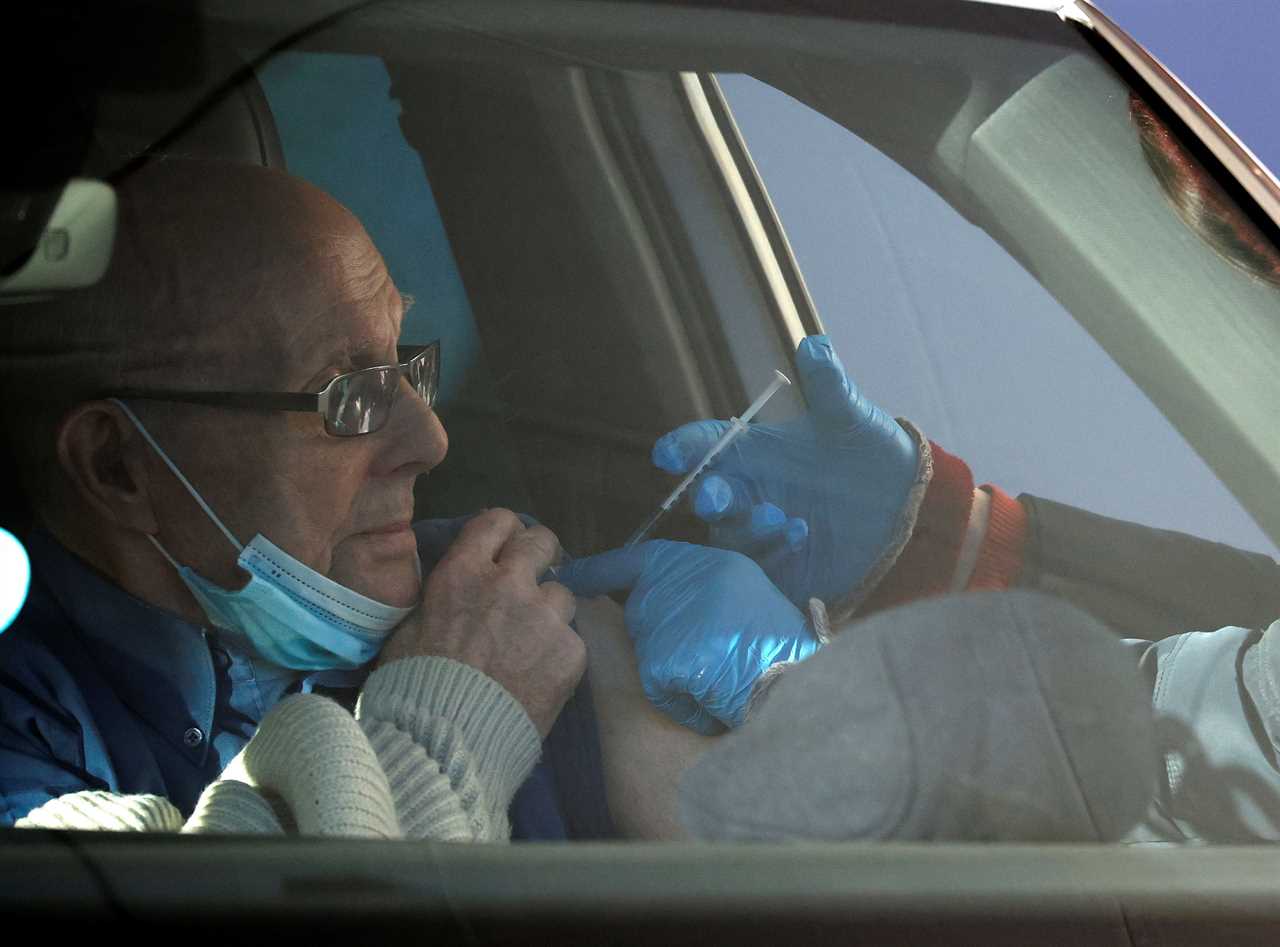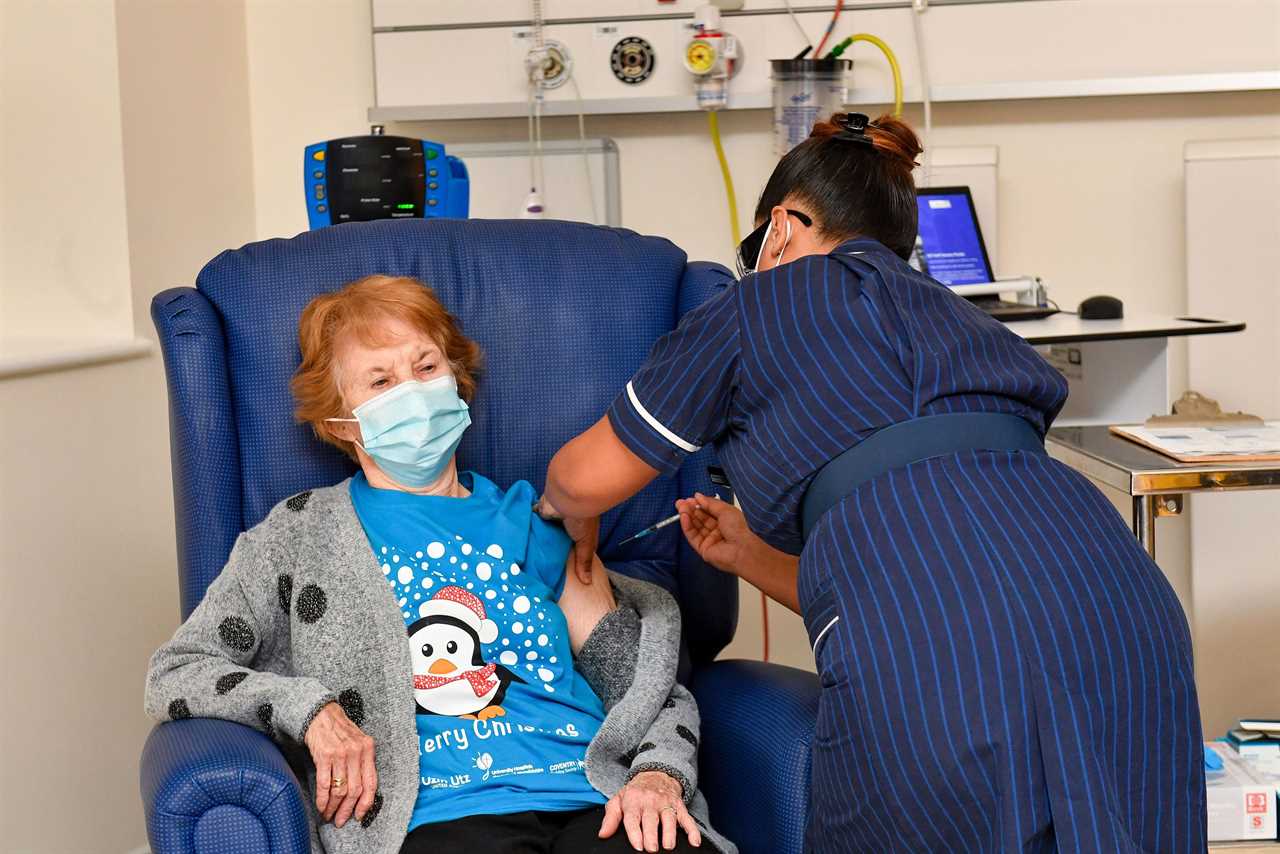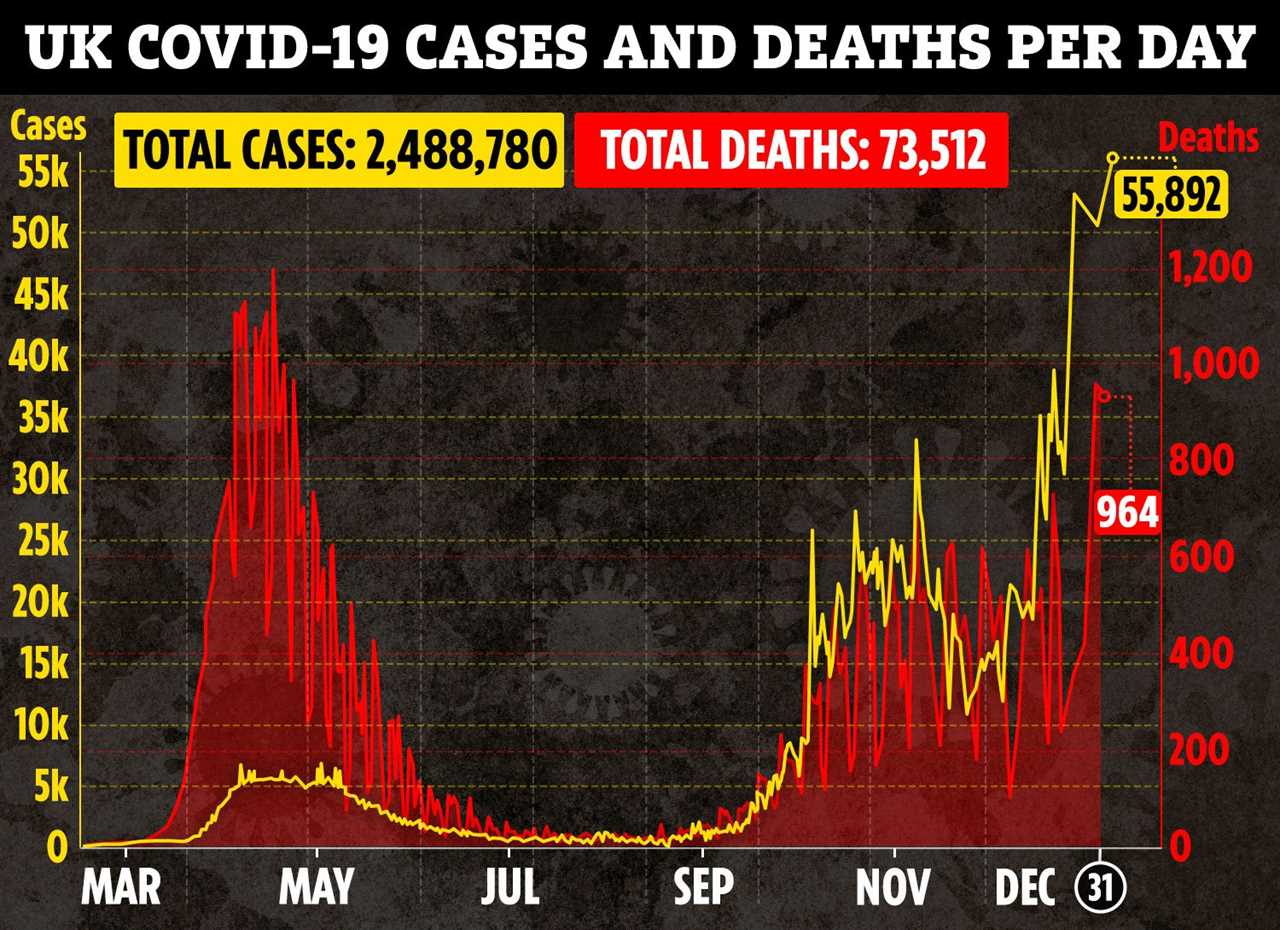DELAYING the second dose Covid vaccine dose will cause huge problem for those who have been partially-vaccinated, GP leaders have warned.
Regulators outlined a new dosing regimen following the approval of the Oxford vaccine yesterday – aimed at speeding up the roll-out.

Experts advising the Government, including the Joint Committee on Vaccination and Immunisation (JCVI), said that the focus should be on giving at-risk people the first dose of whichever vaccine they receive, rather than providing the required two doses in as short a time as possible.
This now means the second dose of both the Oxford/AstraZeneca and the Pfizer/BioNTech vaccines will be within 12 weeks of the first.
Health Secretary Matt Hancock explained that the data from Oxford showed “very effective protection” from the first dose.
But GPs have warned this change will affect tens of thousands of elderly and vulnerable patients.
Many were due to get their second dose of the Pfizer jab in the coming days and weeks – and will need to be rebooked.
It comes as the Government revealed more than 940,000 people in the UK have now received a Covid-19 vaccine as of December 27.
A total of 944,539 people were given a first dose between December 9 and 27, including 786,000 in England, 92,188 in Scotland, 35,335 in Wales and 31,016 in Northern Ireland.
Among those getting their second dose this week was the first Brit to get the Pfizer jab, 91-year-old Margaret Keenan.
‘GROSSLY UNFAIR’
Chair of the British Medical Association’s (BMA) GP committee, Dr Richard Vautrey, said: “It is grossly and patently unfair to tens of thousands of our most at-risk patients to now try to reschedule their appointments.
“The decision to ask GPs, at such short notice, to rebook patients for three months hence, will also cause huge logistical problems for almost all vaccination sites and practices.
“For example, to make contact with even just two thousand elderly or vulnerable patients will take a team of five staff at a practice about a week, and that’s simply untenable.”
Dr Vautrey said the BMA would support practices who honour the existing appointments for the follow-up vaccination, calling for the Government to do the same.
He added: “The Government must see that it’s only right that existing bookings for the oldest and most vulnerable members of our society are honoured, and it must also as soon as possible publish a scientifically-validated justification for its new approach.”
The Doctors’ Association has written to Health Secretary Matt Hancock and the JCVI outlining their concerns today.
In a tweet, they said: “We have real and grave concerns about these sudden changes to the Pfizer vaccine regime.
“It undermines the consent process, as well as completely failing to follow the science.”
However, Mr Hancock said the new process will allow more people to get the vaccine sooner and help the country out of the pandemic “by spring”.
He told the BBC: “It’s very good news for accelerating the vaccine roll-out. It brings forward the day we can get our lives back to normal.”
Explaining the 12-week gap in the dosing regimen, he said: “This is important because it means that we can get the first dose into more people more quickly and they can get the protection the first dose gives you.
“The scientists and the regulators have looked at the data and found that you get what they call ‘very effective protection’ from the first dose.
“The second dose is still important – especially for the long-term protection – but it does mean that we will be able to vaccinate more people more quickly than we previously could.”

Mr Hancock said the plan is to vaccinate all vulnerable groups first but that eventually all adults, including the under-50s, will be offered a jab.
He told MPs that the vaccine would mean the day on which restrictions are lifted can be brought forward – before announcing millions more Brits would be plunged into tougher Tier 4 restrictions.
The jab, from Oxford and AstraZeneca, could give up to 70 per cent protection 22 days after the first dose, experts today revealed.
People won’t need their second dose for another three months – allowing medics to roll the first jabs out to as many people as possible.
Britain has ordered 100 million doses of the vaccine, which is enough to vaccinate 50 million people, with 530,000 doses available from Monday, Mr Hancock said.
Along with the 40 million doses of Pfizer’s vaccine, the UK now has enough doses ordered to vaccinate the entire population, Mr Hancock said.
PFIZER ASSESSMENT
The criticism comes after Pfizer said that it only assessed its vaccine on a two-dose regimen where people were given the jab three weeks apart, and there was “no data to demonstrate that protection after the first dose is sustained after 21 days”.
In a statement, Pfizer says: “Pfizer and BioNTech’s Phase 3 study for the Covid-19 vaccine was designed to evaluate the vaccine’s safety and efficacy following a 2-dose schedule, separated by 21 days.
“The safety and efficacy of the vaccine has not been evaluated on different dosing schedules as the majority of trial participants received the second dose within the window specified in the study design.
“Data from the Phase 3 study demonstrated that, although partial protection from the vaccine appears to begin as early as 12 days after the first dose, two doses of the vaccine are required to provide the maximum protection against the disease, a vaccine efficacy of 95 per cent.
“There are no data to demonstrate that protection after the first dose is sustained after 21 days.”

Pfizer adds that it is working with the UK authorities on the vaccine rollout.
Speaking at a Downing Street briefing on Wednesday, Prof Wei Shen Lim, chairman of the JCVI, said that with Covid infection rates currently at a high level, the “immediate urgency is for rapid and high levels of vaccine uptake”.
He added: “This will allow the greatest number of eligible people to receive vaccine in the shortest time possible and that will protect the greatest number of lives.”
Speaking at the same briefing, Professor Sir Munir Pirmohamed, chairman of the Commission on Human Medicines expert working group on Covid-19 vaccines, added: “Because of the design of the trial, some people got second doses at different time intervals.
“This allowed an analysis of the effectiveness of the vaccine if you were to be able to delay between four to 12 weeks.
“This showed that the effectiveness was high, up to 80 per cent, when there was a three-month interval between the first and second doses, which is the reason for our recommendation.”






